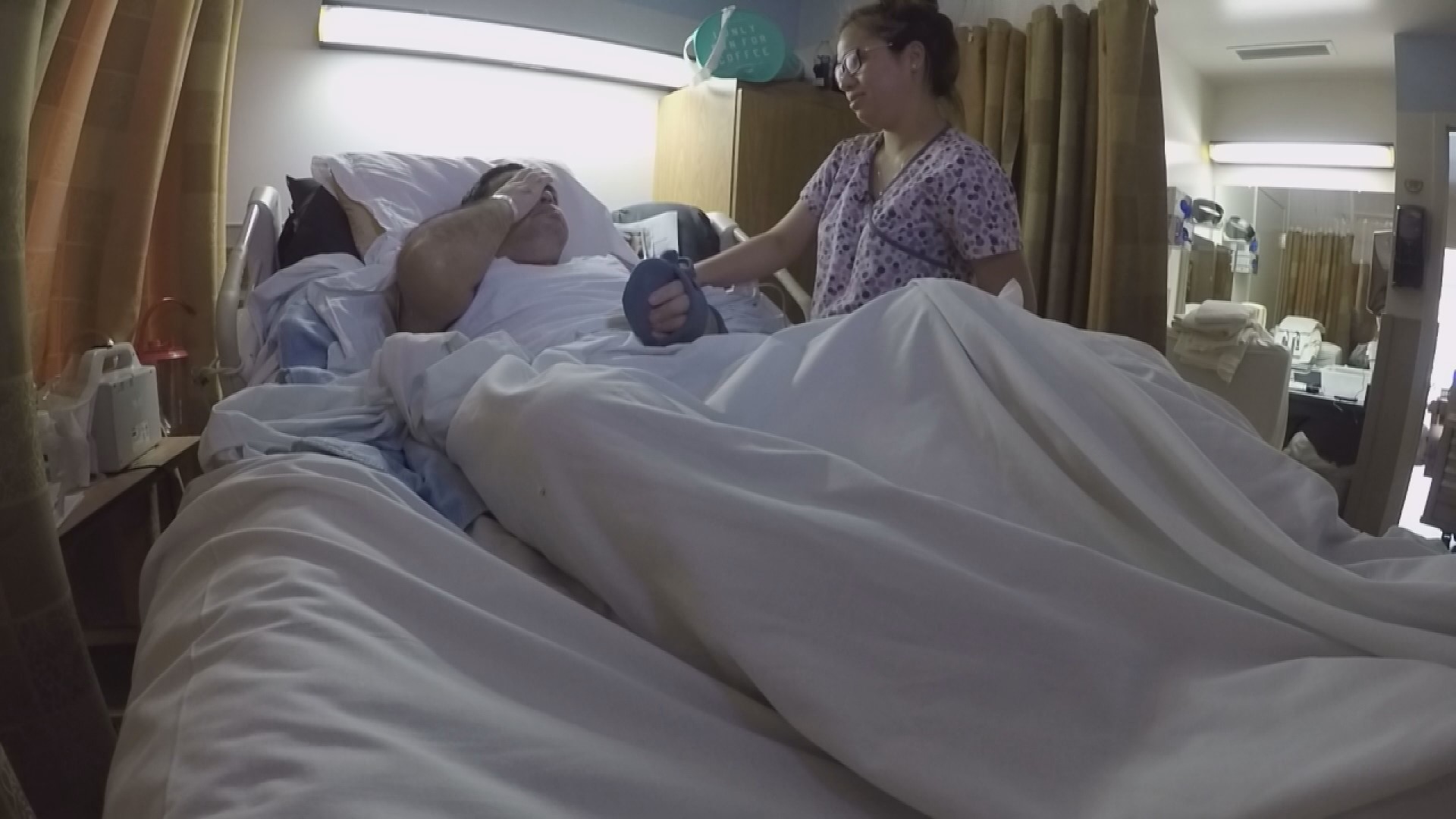SACRAMENTO, Calif — Rosa J., 58, considers herself lucky after recovering from the novel coronavirus in April. (Rosa asked for her last name not be used for ABC10's reporting.)
"I am so blessed that I'm still alive," the certified nursing assistant and caregiver said.
Her Filipina coworker did not survive. That loss gave her anxiety as she fought the virus.
"It was so scary. [It was like having] one foot already in the grave," she explained. "You don't know if the next day you are still alive, or if the next day you're going to still breathe or what."
Rosa is among a third of Filipinx Americans who fill the ranks of health care workers, according to labor data. In California, roughly 20% of registered nurses claim to have ancestral heritage from the Philippines.
That doesn't include other types of healthcare workers who don't work in hospitals, like Rosa.
State data shows that there is a good chance a nurse or aide at a California bedside is Filipinx American.
"That has to do with over a century old history," said Dr. Robyn Rodriguez, director at UC Davis Bulosan Center.
She explained the generations of Filipinx working in health care traces back to the 1900s, when the United States colonized the Philippines and set up nursing schools.
Fast-forward to 2020, Rodriguez's research at the Bulosan Center show that this large swathe of the nursing and healthcare workforce face higher risk for coronavirus infection.
Filipinxs also make up the majority of Asian Americans in California who struggle with poverty as well as have higher prevalence of underlying health issues, such as diabetes and respiratory conditions.
Plus, an estimated 70,000 are undocumented, rendering them ineligible for testing or financial relief.
Rodriguez worries and predicts the Filipinx community will see disproportionate devastation when the pandemic is over. That's why her team is collecting data through the Filipinx/Filpinx-American Health and Well Being Survey.
"If folks are celebrating front-line workers, understand who's on the front lines," she said.
Rodriguez is among advocates calling for policy makers to take the complexities of Asian American and Pacific Islanders into account when surveying the population and when breaking down coronavirus data.
Currently, California's data is broken down by Asians and Pacific Islanders, but Filipinx self-report in both categories.
Breaking down these groups reveal patterns that aren't immediate when AAPI's are lumped together, Rodriguez said. For example, the state's breakdown of Pacific Islanders have shown the small community is dying of coronavirus at rates nearly three times higher than their representation of California's population.
Advocates say understanding the diversity can better support a community largely on the front line.
Realizing a gap in economic relief, the Philippine National Day Association has set up a COVID-19 relief fund for Filipinx families in the Sacramento region. Applications are open through May 8.
Follow the conversation on Facebook with Van Tieu.
FOR THE LATEST CORONAVIRUS NEWS,
DOWNLOAD OUR APP:
►Stay In the Know! Sign up now for the Daily Blend Newsletter



